Article
The Power of Disability podcast explores forces of change
A Below the Radar series hosted by Al Etmanski — highlighting what history has overlooked, the contributions of people with disabilities.
As The Power of Disability podcast series comes to a close, we are looking back on the series, recounting its beginnings, and encapsulating the insights of each guest. Host Al Etmanski spoke with six guests with disabilities who have been key forces of change — in arts, activism, policy change, and many other sites of social transformation and innovation.
The first episode of The Power of Disability was released on April 22, 2021. And while this may have been a happy surprise for your spare-time listening endeavours — our team had been hard at work with author, community organizer and social entrepreneur Al Etmanski for months prior.
Yet, in what feels like a blink of the eye, we came to a bitter-sweet end for this special six-part series — highlighting issues ranging from dismantling stigma to histories of forced sterilization, to solidarity across movements and the ongoing ableism in institutions today. Guests looked back on their own journeys and shared their understandings of, and visions for, the Disability Justice movement.
We hope you found (or will find) the series as insightful and enlightening as we did — while enjoying the compelling stories and moments of levity that arose along the way.
INTENTIONS FOR THE POWER OF DISABILITY SERIES
The Power of Disability podcast was born out of conversations with Al Etmanski, who has been a longtime collaborator of SFU’s Vancity Office of Community Engagement (SFU VOCE), and first partnered with us back in 2016, for the ‘unlaunch’ of his book, IMPACT: Six Patterns To Spread Your Social Innovation.
The production team at SFU VOCE partnered up with Al once again — this time to amplify some of the voices featured in his latest book, The Power of Disability: 10 Lessons For Surviving, Thriving, And Changing The World.
We worked in collaboration with Al to help transform his idea into six episodes, featuring in-depth interviews with some of the remarkable movement leaders and disability advocates highlighted in his book. And so, The Power of Disability podcast was produced by SFU VOCE, and ran as an original series of Below the Radar in the Spring of 2021.
Prior to the series’ release, Al Etmanski sat down with SFU VOCE director and Below the Radar host Am Johal. They spoke about the origins of the series and how it works as an explorative extension of his book.
“There's 100 plus stories in there. And it's packaged as 10 lessons for surviving, thriving, and changing the world. But it doesn't do justice to what I had researched. There's hundreds and hundreds of phenomenal stories. So the podcast profiles six of the more interesting people locally and internationally that I ran across in my research.”
Al went on to speak about the purpose of the series, saying that...
“The point is to have the listener appreciate people with disabilities as authoritative sources on justice, on political campaigning, on democracy, on citizen action, on art, on love, on sexuality, on social change, on astronomy. Just about every aspect of human endeavour.”
Reflecting on his time as a disability advocate, Al acknowledged that he had to unlearn a lot of things he thought he knew about disabilities. “People with disabilities are creators of the world that we live in.” He added that, despite the extensive contributions of disabled folks to our world, the creators of these innovations (or their disability) are often ignored — “so in a sense, disability is written out of history in two ways.”
Al also spoke to the future of the movement — and his place in it as an accomplice — pressing the importance of The Power of Disability podcast as another space to give people with disabilities the opportunity to tell their own stories and to lead the conversation.
“I think it's time for people like me, and big organizations, and people who are not experiencing the challenge — who are not living with it. It's time for us to step back. To use whatever privilege or influence we have to enable people to speak for themselves. In the case of disabled people, enough is enough. It's time for the power and presence of disability to be felt in the public policy arena, and for them to take it over.”
The epsiodes, the guests, the insights
“Recovery shouldn’t be a possibility. It should be an expectation.”
– Victoria Maxwell
Starting this series with a bang, we heard from Victoria Maxwell, a sought-after, international (and funny) keynote speaker, performing artist and workshop leader. Victoria often discusses her personal story of recovery from mental illness to increase awareness, transform negative beliefs and ignite powerful conversations about mental health. In their interview, Victoria and host Al spoke about the role of art and creativity in the process of change; the dramatic increase in antidepressant prescriptions; and the fact that depression is the number one source of disability in the world today. They talked about a need for universal mental health care, and Victoria explained why we need to shift from recovery as a possibility, to recovery as an expectation.
“It's important to work collaboratively with people, to try to have big dreams, to recognize they may not happen overnight, and to be able to change.”
— Judy Heumann
For the second part of this series, we heard from Judy Heumann, lifelong activist and leader in the disability rights movement in the United States and internationally. Among her many accomplishments, she has led the longest sit-in of a federal building to date, lasting 28 days — which led to the creation of the Americans with Disabilities Act. In this interview, Judy spoke about her long history of fighting for the rights of disabled people, a part of which is featured in the Oscar-nominated documentary, Crip Camp: A Disability Revolution. She also shared stories about significant organizing moments and camaraderie in liberation movements, speaking of the importance for the voices of disabled people to come forward.
“At the heart of disability justice is the idea of mutual aid, which means building a capacity for care that isn’t otherwise available.”
— Carmen Papalia
Marking the third episode of the series, we heard from Carmen Papalia, who Al describes as “a phenomenal individual [...] and incredible performance artist.” To describe Carmen’s incredible works, they tend to be participatory projects that focus on access as it relates to public space, art institutions and visual culture. His work has been featured as part of exhibitions and engagements across the world, from the Vancouver Art Gallery to Tate Liverpool. In this podcast episode, he and Al spoke about the rampancy of ableism across institutions, and how these institutions can be sites of retraumatization — that can often overlook and underappreciate variations in ability. Carmen also explored some key ideas within the intellectual framework and practice of Disability Justice.
“The range of disabilities, of lived experience, needs to be reflected in the journey — at the table, making the decisions, leading the work.”
— Rabia Khedr
Activist, consultant, former Human Rights Commissioner, and motivational speaker who ‘wears many hijabs,’ Rabia Khedr, joined Al Etmanski for the fourth installment of this series. Rabia has served on many boards and committees including the Accessibility Standards Advisory Council of Ontario, Ethno-Racial People with Disabilities Coalition of Ontario, and Federation of Muslim Women. In this conversation, Rabia and Al dicssued her advocacy and policy work within the disability and Muslim community, as well as her work in bringing a disability benefit to Canada. Rabia spoke to the vital importance of having disabled folks driving systems of change, and the significance of having what she calls a ‘hyphenated identity.’
"Everybody has the same basic needs. Somebody might need some help to get those needs met, but nobody’s got 'special needs.' Because once you do that, you’re not equal."
— Penny Parry
For Part 5, Al spoke with partners and disability advocates Tim Louis and Penny Parry. Tim is a practicing lawyer who has been actively involved in the disability movement, and Vancouver civic politics for over forty years. Penny has worked as a university professor, artist, and is a former Child and Youth Advocate for the City of Vancouver. Together they shared stories and learnings from 40 plus years of working on social issues in their own careers, and together as a couple. They also spoke with Al about problematic processes that keep supports and monetary assistance behind bureaucratic walls, their experiences of mentorship, and the problem of assuming that disabled folks are fragile, vulnerable, or unresilient.
“I think words are very powerful. If we use complicated words, you're going to leave people out of conversations.”
— Barb Goode
This final installment of the Power of Disability series highlights an unsung hero of the disability movement, and “queen of plain language,” Barb Goode. Barb is a self-advocate leader who is presently serving on the board of directors for PLAN Institute, and also works with ImagineACircle. In this final conversation of the series, Barb and Al talked about her work around self-advocacy for people with learning and developmental disabilities. Barb also spoke to the importance of plain language, the harm that comes from labelling people, and recounted organizing efforts around a milestone legal struggle to prevent the forced sterilization of people with disabilities.
Related Updates
-
August 15, 2023
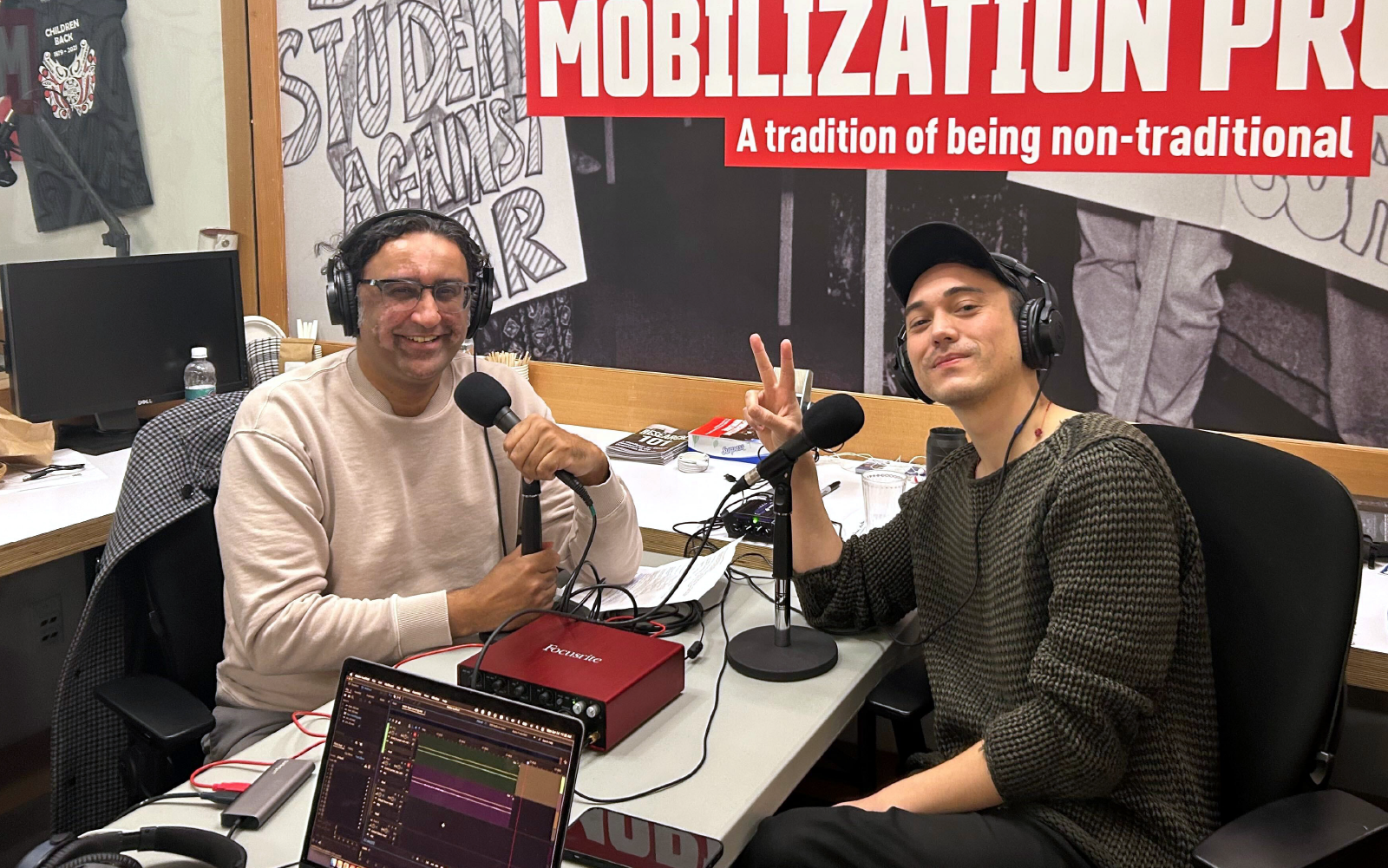
August 15, 2023
With details of our 5-year anniversary celebration event to come, let’s take a sneak peek of the upcoming season.
-
July 26, 2023
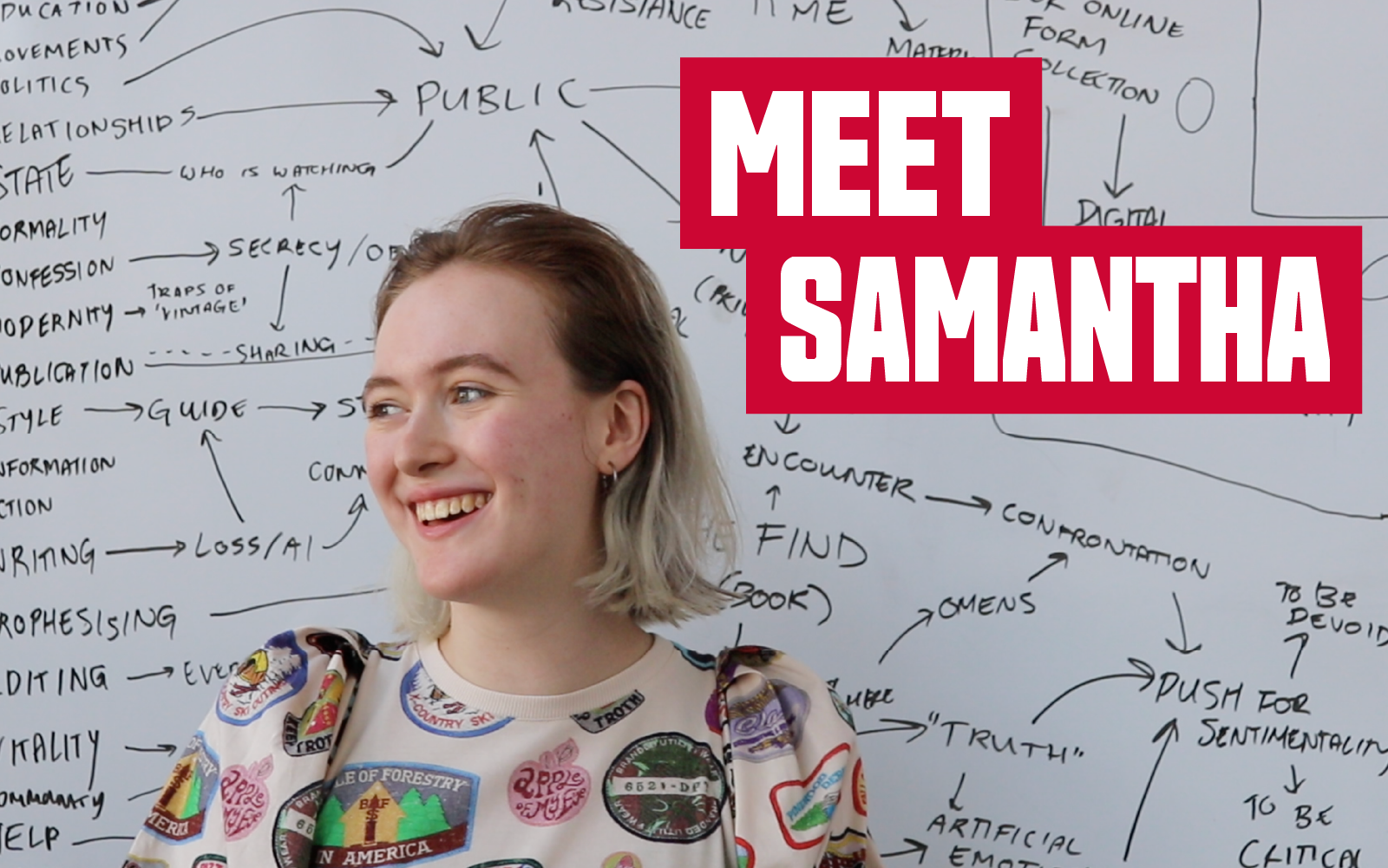
July 26, 2023
Since September 2022, we’ve held 42 events and workshops, released 33 episodes, and engaged more than 25,000 podcast listeners. During that time, working diligently behind the scenes—editing podcast audio, and supporting communications and events programming—was our interim Programs Assistant Samantha Walters, who we are pleased to announce has now moved into a continuing role in the office.
-
July 20, 2023
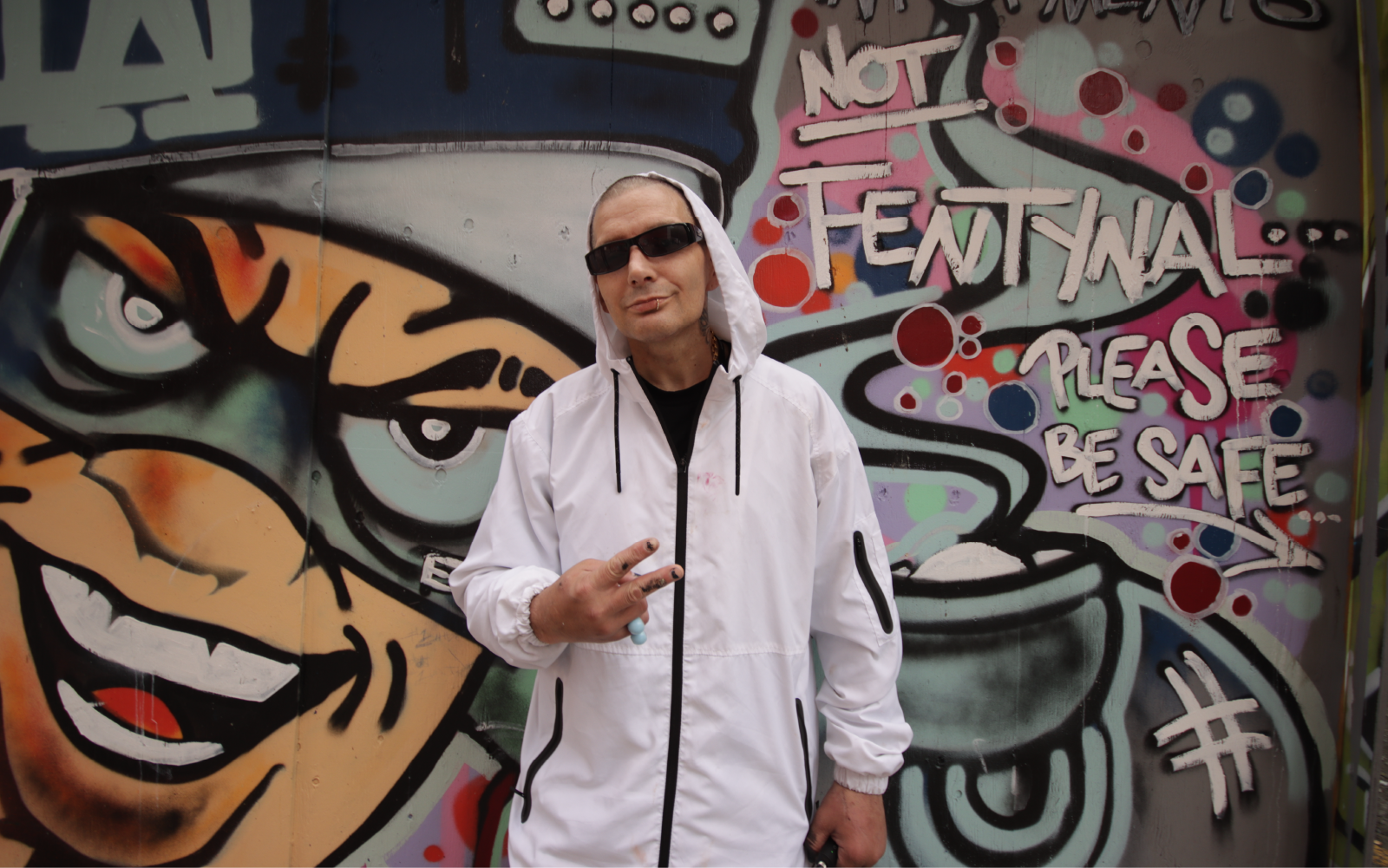
July 20, 2023
On June 29, 2023, 200 people turned out for the world premiere screening of Smokey Devil: Underworld Street Reporter, a feature length documentary by Nathaniel Canuel, co-hosted by SFU’s Vancity Office of Community Engagement.
-
June 13, 2023
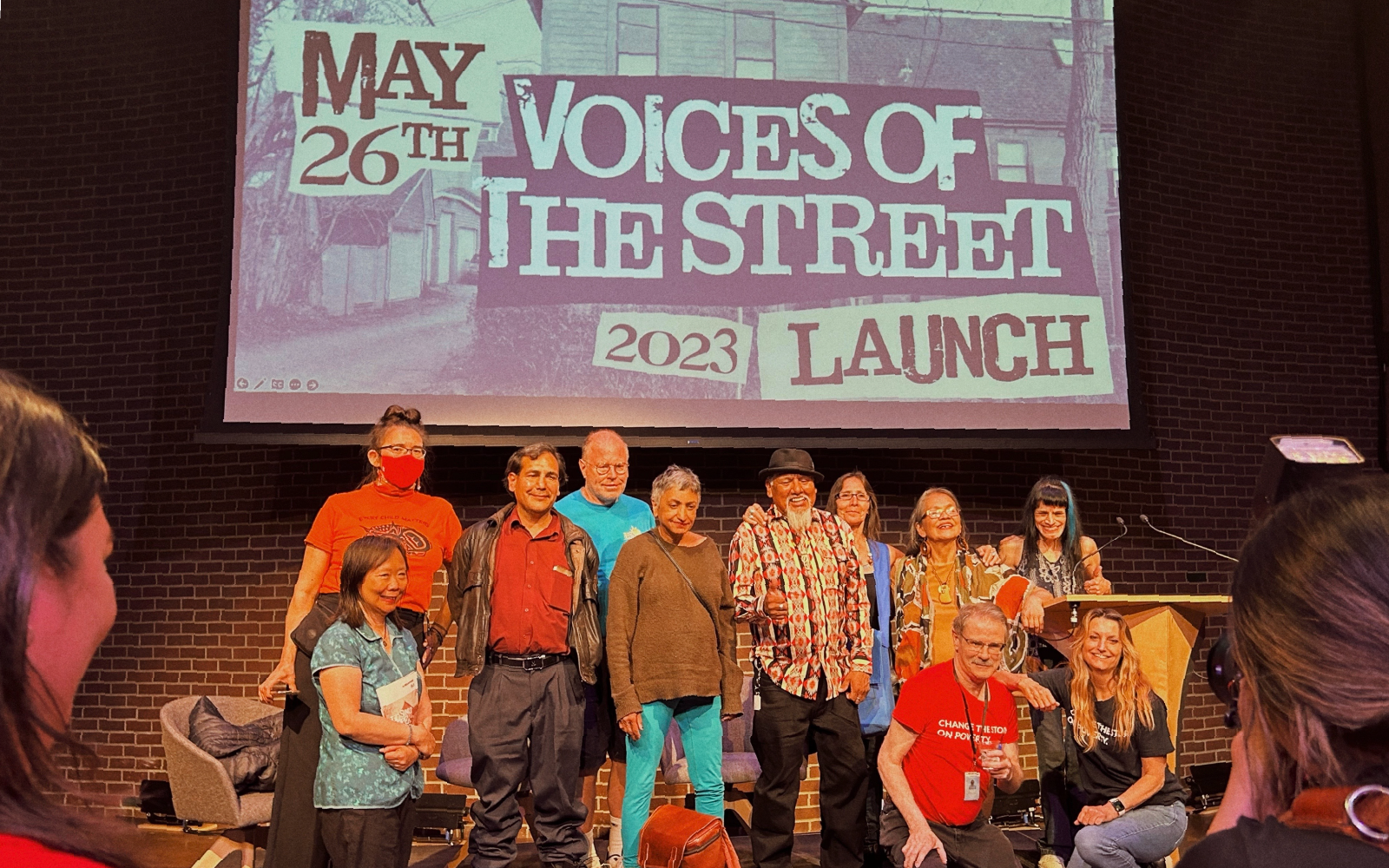
June 13, 2023
Released every spring, Voices of the Street (VOTS) is a compendium of writing by Megaphone community members, a space for exploration of creative expression through language.
-
March 21, 2023
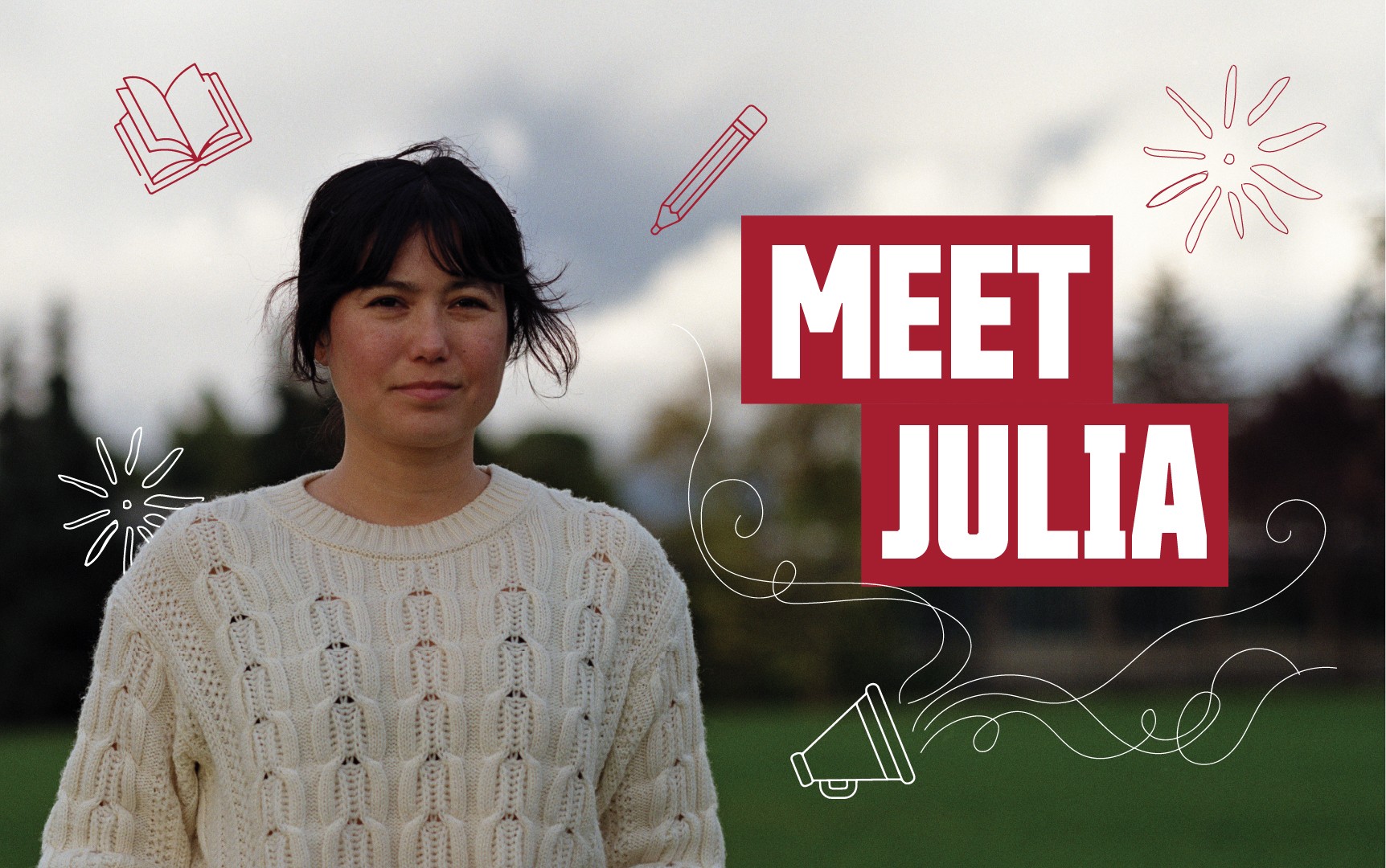
March 21, 2023
We are delighted to welcome Julia Aoki as Program Manager at SFU’s Vancity Office of Community Engagement!



